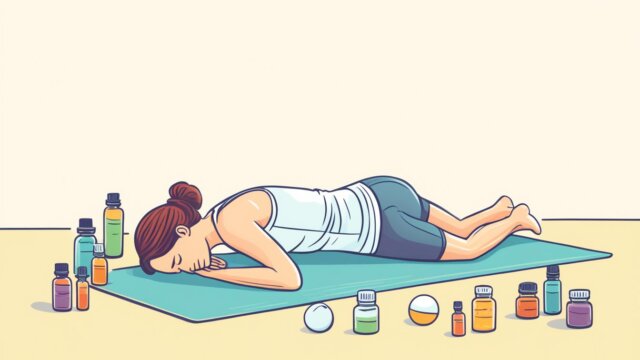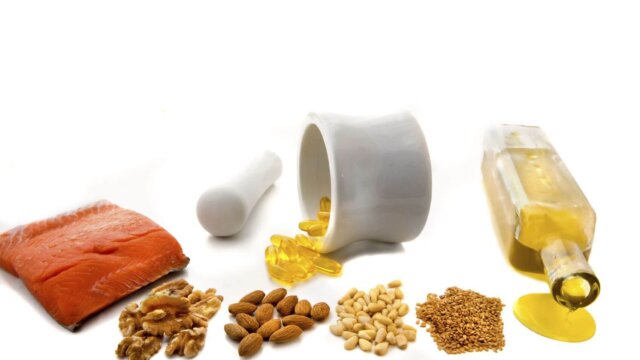FTC disclaimer: This post may contains affiliate links and we will be compensated if you click on a link and make a purchase.
High blood pressure, or hypertension, affects around half of American adults and 1 billion people globally. Without treatment, it can cause heart disease and stroke. Yet, there are many ways to reduce it naturally. This article will look at 16 home remedies and lifestyle changes to help manage your blood pressure and boost your heart health.
Key Takeaways
- High blood pressure impacts nearly half of American adults and 1 billion people around the world.
- Maintaining a healthy weight, regular exercise, and a good diet can help lower your blood pressure a lot.
- Cutting back on salt, drinking less alcohol, and stopping smoking are also good ways to control high blood pressure.
- Getting good sleep, less stress, and using home remedies like dark chocolate and berries might lower it, too.
- Talking with a healthcare professional is very important for making a plan to keep your blood pressure under control.
Maintain a Healthy Weight
Staying at a healthy weight is key for controlling high blood pressure. Being overweight, especially around your middle, makes you more likely to have high blood pressure. Surprisingly, not even half of the people with high blood pressure manage it well. Yet, keeping off extra pounds could lower the risk for heart issues and strokes.
Lose Extra Pounds
Dropping just a little weight, like 5% of your total, can help your blood pressure. It also boosts your heart’s health. In some cases, changing your lifestyle is enough to bring down high blood pressure. But, often, people need both healthy living and meds.
Watch Your Waistline
It’s also crucial to slim down your waist. The American Heart Association links belly fat to high blood pressure. Getting in shape and staying active are key to a healthier heart. Not taking care of your blood pressure can lead to many serious health problems. These include heart disease, heart failure, stroke, kidney issues, and more.
Aiming for a normal BMI and waist size is important for heart health. Regular exercise is a must for keeping your blood pressure in check. Experts advise at least 30 minutes of activity most days. This could reduce your blood pressure by 6-12 points for systolic and 3-7 points for diastolic.
“Losing even a small amount of weight, such as 5% of your body weight, can significantly lower your blood pressure.”
Exercise Regularly
Moving your body regularly is key in managing high blood pressure. The American College of Cardiology and the American Heart Association say that ideal blood pressure is less than 120/80 mm Hg.
Exercise can drop both numbers, by 4 to 12 mm Hg for the bottom number and 3 to 6 mm Hg for the top number. Mixing cardio like brisk walks with strength workouts helps keep your blood pressure in check.
Aerobic Exercise
Aiming for 150 minutes of moderate-intensity exercise weekly is good for your heart. It usually takes a month or so to see changes in your blood pressure from exercise, but these benefits last as long as you keep moving. Activities you can enjoy include brisk walks, bike rides, dancing, or even gardening.
Strength Training
Don’t forget about strength training for your heart health. Lifting weights can make your heart and blood vessels stronger, lowering your blood pressure. Compared to other types of exercise, strength training seems to work better at reducing blood pressure.
Doing exercises like wall sits and planks might be the best way to lower your blood pressure. Mixing up cardio and strength training often gives the most health perks.
Staying active helps you stay at a healthy weight. Dropping even 5 pounds might bring your blood pressure down. It’s good to aim for either 150 minutes a week of moderate workouts or 75 minutes of intense ones, or do both. If you sit a lot, remember to get up and move every hour to help steer clear of high blood pressure risks.
If you’re starting to exercise and have health issues, talk to your doctor first. Make sure to watch how hard your heart is working when you exercise to stay safe. If you feel any chest pains or unusual discomfort, stop and get help. Checking your blood pressure at home can be a big help in managing high blood pressure over time.

“Doing exercise along with eating well, managing stress, sleeping enough, and staying active is better than just taking blood pressure pills.”
Eat a Healthy Diet
Eating well is key to controlling high blood pressure. There are two diets that help. The DASH and Mediterranean diets are known to lower hypertension. They focus on eating whole foods like fruits, veggies, and grains. Also, they suggest eating less salt, saturated fat, and sugar.
DASH Diet and Mediterranean Diet
The DASH diet is proven to reduce blood pressure. It recommends keeping your salt intake low, aiming for 2,300 mg per day. For even better results, try to stay under 1,500 mg of sodium. It includes plenty of grains, veggies, fruits, and low-fat dairy in your daily meals.
The Mediterranean diet is also great for the heart. It’s based on eating lots of plant-based foods. This includes fruits, vegetables, and nuts. Olive oil is a big part of this diet. It adds in some fish and poultry but less red meat and sugar.
Increase Potassium Intake
Adding more foods rich in potassium to your diet can help too. Potassium balances out too much salt in your body. This helps keep your blood pressure in check. You can find potassium in fruits, veggies, and whole grains.
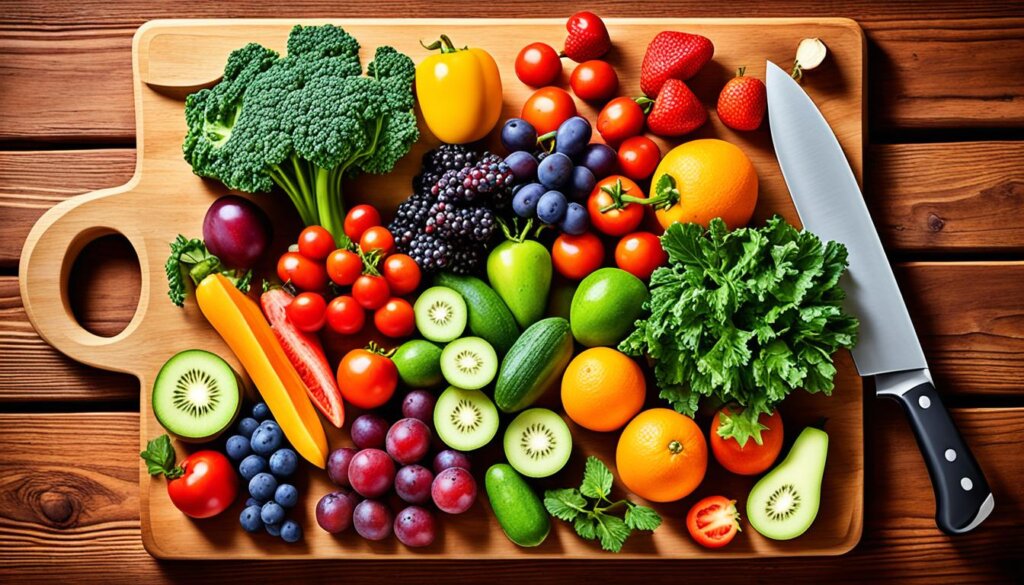
For example, a banana is packed with about 422 mg of potassium. Blueberries and strawberries also help lower blood pressure due to their antioxidants. Other good foods for blood pressure include beet juice, dark chocolate, and watermelon.
Choosing the DASH or Mediterranean diet and eating more potassium-rich foods is a smart move. It helps control your blood pressure. It’s good for your heart health overall.
Reduce Sodium Intake
Lowering the sodium you eat is key in handling high blood pressure. The American Heart Association sets the max at 2,300 milligrams a day. But, it’s even better to aim for 1,500 milligrams a day or less. Taking out 1,000 milligrams daily could boost your blood pressure and heart health.
First step in cutting sodium is checking food labels. Choose foods with less sodium. Remember, a quarter teaspoon of table salt is 575 mg of sodium. Use less salt when cooking. Go for fresh foods over processed ones too. This can lower the sodium you eat and help keep your blood pressure in check.
- The recommended sodium limit for most adults is 1,500 mg per day.
- Snacks, sauces, dressings, and processed meats should have 200 mg of sodium or less per serving.
- Ready-to-eat meals should contain 600 mg of sodium or less.
Simple changes in your diet make a big difference in cutting sodium. This is a vital step in lowering your high blood pressure.
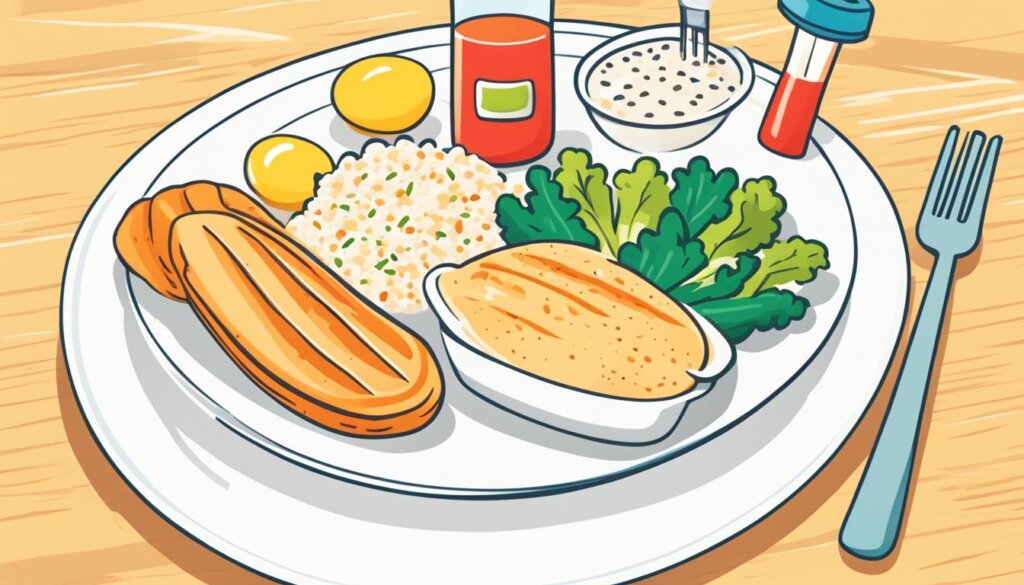
“Reducing sodium intake is one of the most effective lifestyle changes for managing high blood pressure.”
The DASH diet is great for the heart. It’s low in sodium, cholesterol, and fats. And high in fruits, veggies, fiber, and low-fat dairy. Studies suggest it could help lower your systolic blood pressure by eight to 14 points. Following this healthy eating plan is a smart move to cut down on salt. It can lead to better heart health overall.
Limit Alcohol Consumption
Drinking too much can harm your blood pressure and hurt your medicine’s work. Stick to one drink a day for women or two for men to stay healthy. This can lower your blood pressure by up to 4 mmHg.
Binge drinking can quickly spike your blood pressure. Having more than three drinks at once is risky. It’s vital to keep your drinking at a moderate level to stay safe. This means one drink a day for women and two for men.
If you cut down from heavy drinking, your pressure can drop significantly. Also, alcohol can affect how well some blood pressure drugs work. It’s smart to talk to your doctor. They can help you balance drinking with your treatment.
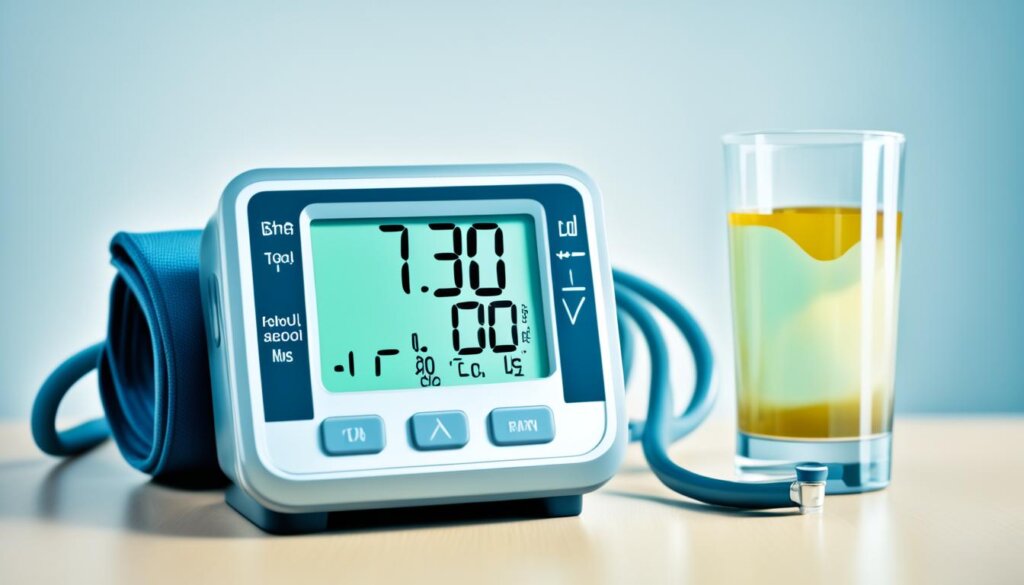
Lately, We’ve learned that even moderate drinking can be bad for your heart. Stay away from soda, sweet drinks, energy drinks, and alcohol if you have high blood pressure. Try drinks like beet juice, tomato juice, and low-fat milk instead.
“Limiting alcohol to less than one drink per day for women or two drinks per day for men can help lower your blood pressure by about 4 mm Hg.”
Quit Smoking
Quit smoking to lower high blood pressure and heart disease risk. Smoking raises these risks because it increases blood pressure and heart rate. Nicotine makes you more likely to have these health problems.
Stopping smoking is hard, but the good news is the perks are big. The first 10 to 14 days are very tough. Typically, people try three times before they succeed at quitting. Using nicotine gum or patches can make this process easier.
Look for help from the American Lung Association or local support groups. It’s also wise to avoid things that might make you want to smoke, like alcohol. Remember, quitting lowers your blood pressure and greatly improves your health.
There are natural ways to help quit smoking, too. For instance, some people find black pepper oil, angelica oil, and acupuncture decrease their urge to smoke. There’s also some evidence that hypnotherapy and drinking lime juice could help.
Ready to quit? Start by picking a quit day in the next week. You might cut back on smoking first or just stop all at once. Have healthy snacks ready and find new hobbies to keep your mind off smoking. Also, get rid of all smoking items to make quitting easier.

Quitting smoking is hard but crucial for your health. With the right help and determination, you can beat the habit. Then, you’ll see big improvements in your life and health.
Get Enough Sleep
Getting enough sleep is key for healthy blood pressure levels. Not sleeping enough can raise your risk of high blood pressure or hypertension. It might even stop your blood pressure from dropping naturally during sleep.
Most aim for a blood pressure below 120/80 mm Hg. If it’s 130/80 mm Hg or higher, it’s high. Sleep less and you’re more likely to develop high blood pressure. Try to get 7-9 hours of sleep each night to keep your blood pressure healthy.
Addressing sleep problems can help a lot. Things like sleep apnea and insomnia can raise your blood pressure. Also, good sleep habits like a consistent bedtime and no caffeine or alcohol before bed support healthy blood pressure.
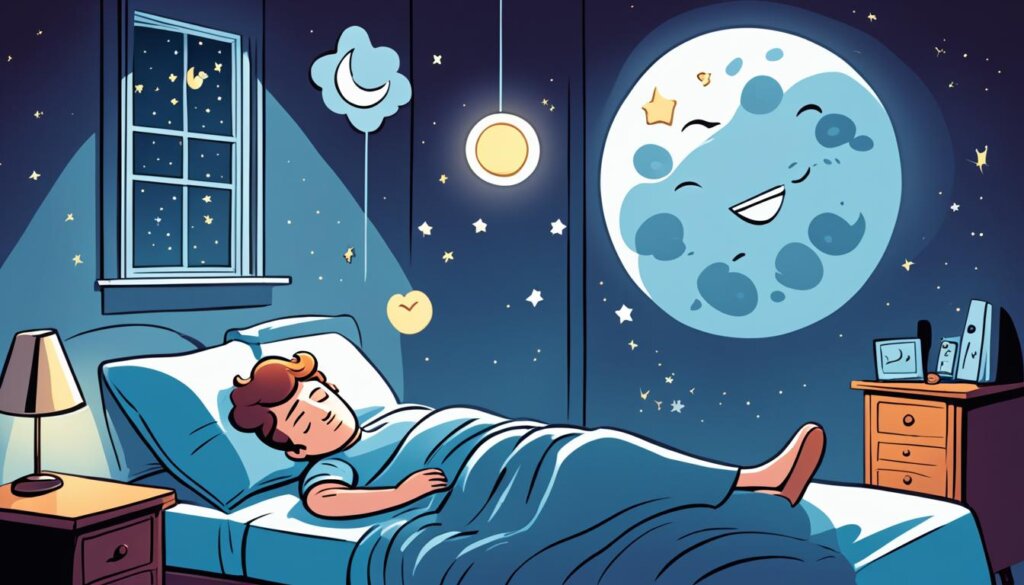
“Adequate sleep, ideally at least 7 hours per night for most adults, is crucial for maintaining healthy blood pressure levels.”
Make sleep important. Deal with any sleep problems you have. This can help lower your blood pressure naturally. Focusing on quality sleep is good for your heart without needing medicine.
Manage Stress
Chronic stress can greatly raise high blood pressure. When we’re stressed, our bodies make hormones that tighten our blood vessels. This makes our hearts beat faster for a while, pushing up our blood pressure. It’s key to find good ways to handle stress. This can lower your chance of high blood pressure and make you feel better overall.
Listen to Soothing Music
Hearing calm, soothing music can help cut stress. It may also lower your blood pressure. In fact, studying music therapy found it can drop high blood pressure numbers. That’s both the top and bottom numbers. Add soft tunes to your daily life. This could help your whole system feel less stressed. Plus, it might keep your blood pressure in check.
Work Less
Working less can reduce stress from your job. This stress can also make your blood pressure go up. Too much work or a really tough job can feed into high blood pressure. Balance work with time for yourself. Taking regular breaks is a smart move. It softens how hard work stress hits your heart.
Besides music and easing work stress, there are more ways to manage stress and cut blood pressure. Try relaxing stuff like deep breaths, meditation, and yoga. Doing these regularly can weed out stress. This might help keep your blood pressure and health in a good place.

“Stress is a silent killer, but with the right tools, you can take control and lower your blood pressure naturally.”
Lose Weight
Keeping a healthy weight helps manage high blood pressure, or hypertension. If you’re overweight, you’re more likely to get high blood pressure. About 42.4% of American adults are obese. Roughly 9.2% suffer from severe obesity. Obesity can raise the chance of high blood pressure by 65% – 75%.
You can lower your blood pressure by losing just a little weight. For overweight people, shedding 5 pounds (2.3 kilograms) can make a difference. The more weight you lose, the bigger the impact on your blood pressure. Even losing 5% of your body weight can significantly lower high blood pressure.
Creating a plan for healthy weight loss is key. It should include eating well and exercising regularly. Studies have found that being active can help reduce high blood pressure and lower cholesterol. Aerobic exercises are especially good for this. And, just moving more can cut down high blood pressure, especially for those not used to exercise.
Some blood pressure medicines, like Atenolol, might make you gain weight. So, trying to keep a healthy weight is good for lowering your blood pressure. It might also mean you need less medicine.
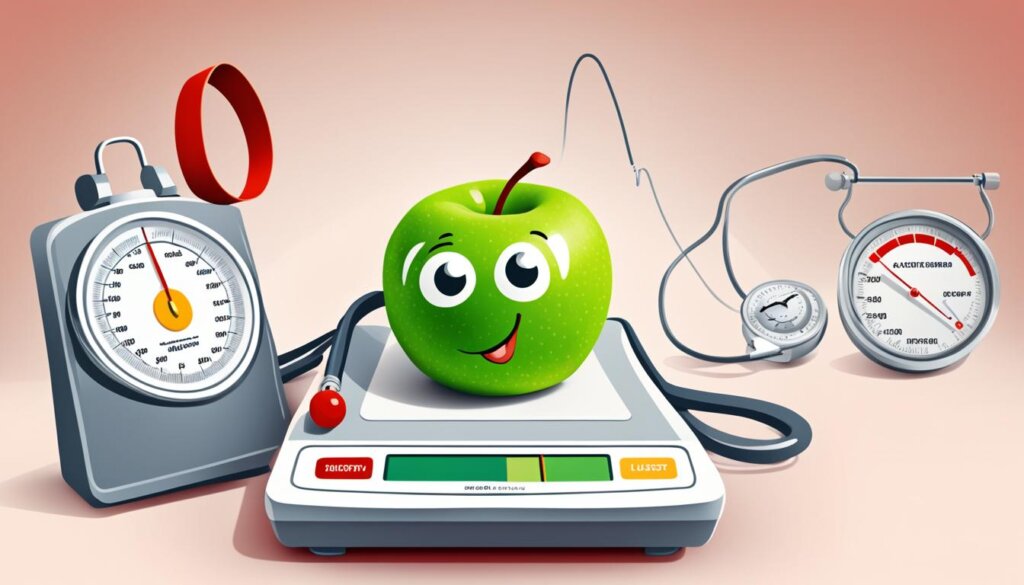
To manage high blood pressure and be healthy, take a whole approach to weight control. This includes eating right, moving more, and sleeping well.
It’s important to keep these healthy habits even if you don’t need blood pressure medicine anymore. High blood pressure needs constant watch and care.
“Losing just 5% of your body weight could significantly lower high blood pressure.”
Eat Dark Chocolate
If you want a tasty way to support your blood pressure, try dark chocolate. It’s packed with flavonoids, which help blood vessels relax and improve flow. A Harvard study found that eating a small daily square may lower blood pressure in those with hypertension.
When choosing dark chocolate, pick ones with 60-70% cacao. More cacao means more flavonoids. Stay away from processed cocoa for lower flavonoid benefits.
Enjoy dark chocolate, but don’t overdo it. Too much can lead to extra pounds, a risk for high blood pressure. Aim for a daily portion of one square or ounce for best results.
But remember, dark chocolate isn’t the only answer to reducing blood pressure. Keeping a healthy weight, staying active, and stress management are also key. Balancing dark chocolate with a healthy lifestyle is the best approach.
Nutrient | Amount per 1/4 cup (1.5 oz or 2 large squares) |
|---|---|
Calories | 220 |
Protein | 2 grams |
Fat | 13 grams |
Carbohydrates | 24 grams |
Fiber | 3 grams |
Sugar | 18 grams |
Cholesterol | 3 milligrams |
Sodium | 9 milligrams |
Dark chocolate is both delicious and healthy in moderation. But be mindful of the calories and sugar. Keeping sugar intake low is key to a healthy lifestyle, and dark chocolate can be part of that.
Some dark chocolate contains high levels of heavy metals, which are not good for health. Choose dark chocolate from trusted brands with safety certifications for the best experience.
“Consuming a small square of dark chocolate daily can help lower blood pressure in individuals with hypertension.”
Pair dark chocolate with a healthy life to support your heart and keep your blood pressure in check.
Cut Back on Refined Carbs and Sugar
Cutting down on refined carbs and added sugar can help lower high blood pressure. Research shows more sugary drinks mean higher blood pressure in kids and teens. And, a low-carb diet could lower systolic and diastolic pressure.
For good blood pressure, cut back on refined grains and sweets. Eat lots of whole, fiber-rich carbs from veggies, fruits, and whole grains. This is backed by studies showing that quality carbs can lower pressure. Too much sugar and refined carbs increase the risk of high blood pressure.
Also, eating more fiber from whole grains is good for blood pressure. Recent studies found that women who ate more grain fiber were less likely to get high blood pressure. Short-chain fatty acids from fiber digestion can also help decrease your pressure.
Choosing less refined carbs and sugar, and more whole, fiber-rich foods, is key. It helps keep your blood pressure in check.
Diets rich in protein, especially from plants, could lower your high blood pressure risk by 6%.
Eat Berries
Berries contain polyphenols, special plant compounds great for heart health. Eating lots of berries and foods with polyphenols can better your heart’s health. It can lower blood pressure-risk markers. In a study, people with high blood pressure saw their levels improve with a berry-rich diet.
To boost your heart, add more blueberries, raspberries, and strawberries to your meals. Those eating 1.6 blueberry servings daily had a lower blood pressure of 4.1 mm Hg on average. A drop of 5 mm Hg cuts heart attack and stroke risk by 10%.
Berries are tasty and full of fiber, great for your blood pressure. A cup of blueberries has 4 grams of fiber. People eating fiber-heavy DASH diets get over 30 grams of fiber daily. Fiber’s benefits may come from helping your gut health.
Berries are also high in anthocyanins, known to boost blood flow and lower pressure. Having a drink with freeze-dried wild blueberries each day for 12 weeks cut blood pressure by 3.59 mm Hg.
Enjoy berries in your meals like smoothies, salads, or as snacks. This can taste good and helps keep your blood pressure normal.
Try Meditation and Deep Breathing
Want to lower your high blood pressure naturally? Try meditation and deep breathing. These methods relax your body. They activate the part of your nervous system responsible for calming you.
There are many kinds of meditation and breathing exercises. They can really help lower your blood pressure. High blood pressure affects nearly half of U.S. adults. It’s a concern if it stays at 130/80 mmHg or higher.
Making meditation and deep breathing a part of your daily life is smart. You can start with just a few minutes a day and grow from there. Even taking six deep breaths quickly can make a big difference.
Focusing on breathing that uses your diaphragm can also be good for your blood pressure. Doing this for five to 10 minutes daily can lower your blood pressure significantly.
Remember, use these methods along with what your doctor recommends. They can be a key part of a healthy lifestyle. Take charge of your health by managing your blood pressure better.
“Meditation and deep breathing can be a powerful way to lower high blood pressure and improve heart health.”
Other Home Remedies for High Blood Pressure
You can lower high blood pressure by living healthy, exercising, and cutting down on salt and alcohol. Also, natural remedies and some supplements might help. These can supplement your overall treatment plan from your doctor.
Dark chocolate is good for your heart because it’s full of flavonoids. These help your blood vessels relax and your blood flow get better. Berries, like blueberries and raspberries, also have antioxidants that are good for your heart.
Some people feel better using things like meditation and deep breathing. These calm you down and can lower your blood pressure. Herbal teas, such as hibiscus and valerian root, might help too. But we need more studies to be sure.
Even though these natural ways can help, they are not a replacement for your medicines or other doctor treatments. Always talk to your doctor before trying anything new. This is especially important if you already take blood pressure medicine.
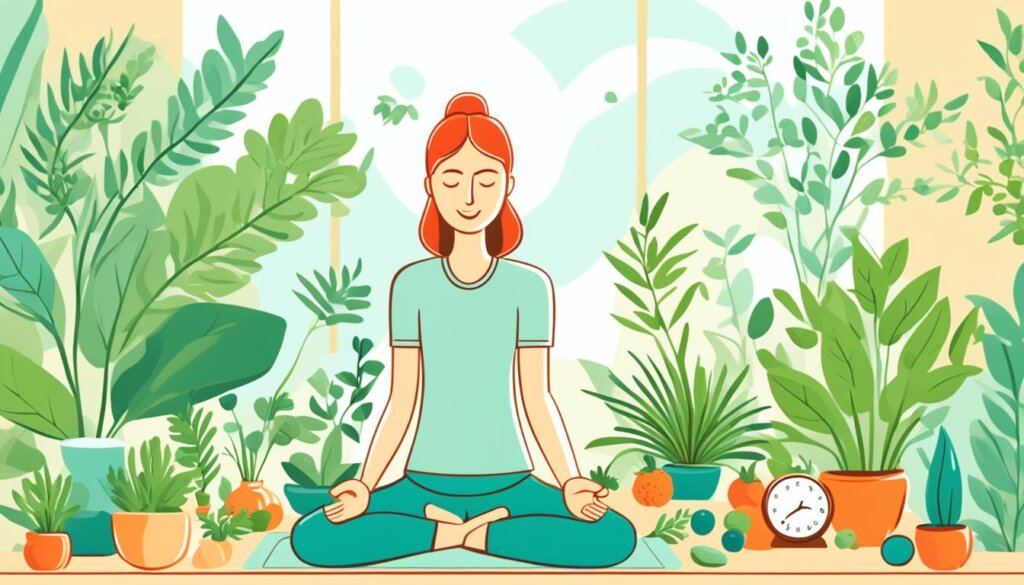
Changing your lifestyle and using these natural ways together can help a lot. They are steps to a healthier heart. So, work with your doctor and do what you can. Little by little, you’ll feel better and be healthier.
Conclusion
High blood pressure, or hypertension, is very common and serious in the U.S. It affects about 29% of adults. The chance of having it goes up as you get older. About 63% of people over 60 have it. The good news is, there are many effective natural ways to decrease it and manage without medicine alone.
Try making some changes to how you live, such as keeping a healthy weight and exercising. Eating a diet full of nutrients and finding ways to relax are also important. This way, you can play an active part in keeping your blood pressure at a safe level. These steps can also lower your risk of heart disease and other health problems.
The DASH and Mediterranean diets, along with some home remedies such as garlic and hibiscus tea, are known to help. Consulting your doctor is a smart move to figure out what’s best for you. By managing your blood pressure naturally, you can boost your heart health and lower the risks of hypertension complications.
FAQ
What are some effective home remedies for high blood pressure?
Effective home remedies for high blood pressure are many. They include keeping a healthy weight. Also, exercising often and eating foods that are good for you is key.
Other methods are reducing how much salt you eat. Don’t drink too much alcohol. Quit smoking if you smoke. Making sure you sleep enough is vital. Lastly, find ways to relax is important.
How can losing weight help lower high blood pressure?
Losing a little weight can make a big difference. For example, dropping just 5% of your weight can lower your blood pressure. It’s important to keep a healthy weight to keep your blood pressure in check.
What types of exercise are best for lowering high blood pressure?
For lowering high blood pressure, any exercise that gets your heart pumping is great. This includes walking fast, jogging, biking, or swimming. Lifting weights is also helpful.
What dietary changes can help manage high blood pressure?
Eating healthy foods is crucial for managing high blood pressure. This means enjoying fruits, vegetables, whole grains, lean meats, and good fats. The DASH or Mediterranean diet is ideal.
Adding more foods high in potassium can also help. These include bananas, oranges, and leafy greens.
How can reducing sodium intake help with high blood pressure?
Lessening the amount of salt you eat is important. Try to eat less than 2,300 mg of sodium a day. If you can, aim for 1,500 mg.
Choosing foods with less salt is a good start. Also, don’t add extra salt when cooking.
Can limiting alcohol help lower high blood pressure?
Drinking too much can increase your blood pressure. It’s best to limit alcohol. Women should have less than one drink a day. Men should keep it under two drinks daily.
How does quitting smoking benefit high blood pressure?
Smoking is bad for your heart and blood pressure. If you quit, you can lower your blood pressure. This helps reduce your risk of heart problems.
How can getting enough sleep improve high blood pressure?
Getting enough sleep is great for your blood pressure. Aim for at least six hours each night. If you have trouble sleeping, try to figure out why.
Good sleep habits can help make your blood pressure healthier.
What are some effective stress management techniques for high blood pressure?
For managing stress and blood pressure, certain things work well. Listening to soothing music and deep breathing is calming.
Trying to work less can also reduce your stress level.
Can natural supplements or home remedies help lower high blood pressure?
Yes, there are some natural ways to lower blood pressure. Eating dark chocolate and berries are good. So is meditation and deep breathing.
Before you try anything new, talk to your doctor. This is especially important if you’re already taking medicine for high blood pressure.

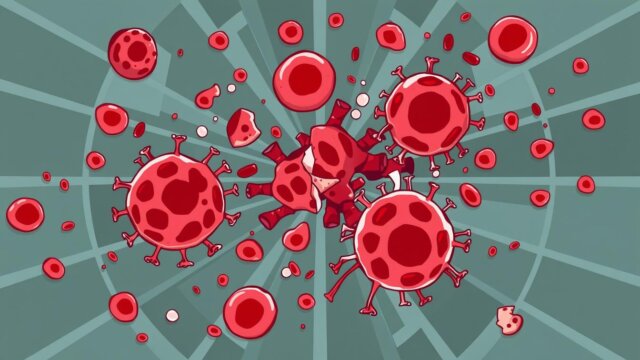
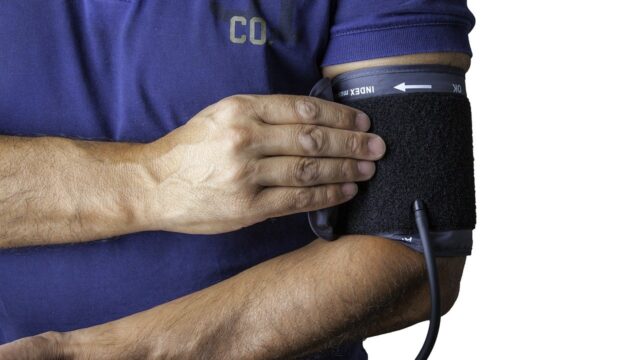


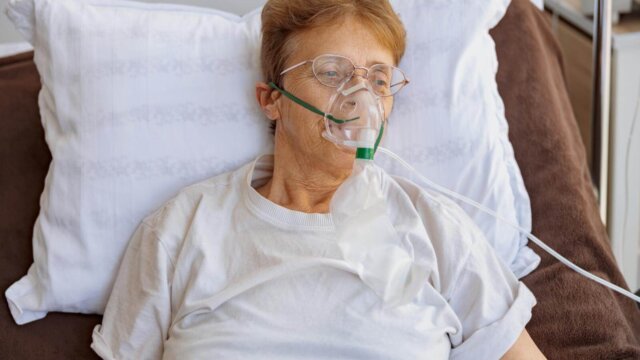
![14 Effective Home Remedies for Cough [Ultimate Guide]](https://healthyious.com/wp-content/uploads/2020/01/14-Effective-Home-Remedies-for-Cough-Ultimate-Guide-640x360.jpg)
